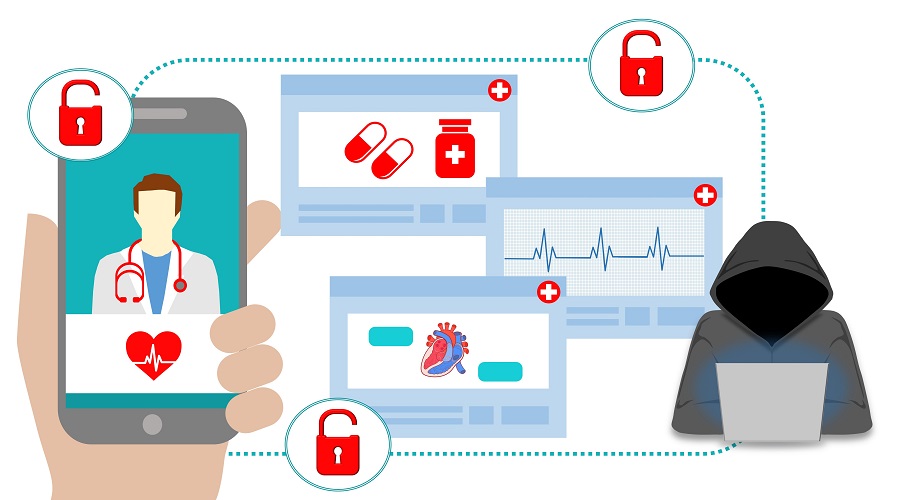Healthcare cybersecurity has been a growing concern for many healthcare organizations, with cyberattacks becoming a major threat to the sector. In today’s digital world, healthcare data is becoming increasingly valuable, making it the biggest target for cybercriminals. With the increasing frequency and sophistication of cyberattacks, healthcare organizations need to prioritize their cybersecurity efforts and work with healthcare cybersecurity experts and cybersecurity consulting services to ensure their systems and data are secure.
Here are five reasons why healthcare is the biggest target for cyberattacks:
1. Healthcare data is valuable

Healthcare data, including patient information, medical records, and payment information, is considered to be some of the most valuable data on the black market. This data is worth more than credit card information because it is more personal and contains sensitive information that can be used for a variety of fraudulent activities. Cybercriminals are taking advantage of this and are targeting healthcare organizations to get their hands on this valuable information.
2. Lack of cybersecurity investment
While many healthcare organizations are investing in technology, not all of them are investing in cybersecurity. This lack of investment in cybersecurity makes it easier for cybercriminals to exploit vulnerabilities and steal sensitive information. Healthcare cybersecurity experts recommend that organizations invest in cybersecurity as a key component of their overall technology strategy.
3. Outdated systems
Many healthcare organizations are still using outdated systems, making them more vulnerable to cyberattacks. Outdated systems are more susceptible to vulnerabilities, which can be easily exploited by cybercriminals. Organizations need to ensure they have up-to-date systems and software to reduce the risk of cyberattacks.
4. Employee error
Employees are often the weakest link in an organization’s cybersecurity defense. They may be tricked into giving away sensitive information, such as passwords, or they may download malware that infects the organization’s systems. Organizations need to educate their employees on cyber threats and best practices to reduce the risk of cyberattacks.
5. Interconnectivity
Healthcare organizations are becoming more interconnected, with electronic health records (EHRs) and other systems that share information across organizations. While this interconnectivity has many benefits, it also creates new risks and challenges for healthcare cybersecurity. Cybersecurity consulting services can help organizations identify and address these risks and ensure that their systems are secure.
Another reason why healthcare is the biggest target for cyberattacks is because of the sensitive nature of the information being stored. Patients trust healthcare providers to keep their personal and medical information confidential, and a data breach could have serious consequences for both the patient and the provider. In addition to the sensitive information being stored, healthcare providers also hold a large amount of financial information, such as payment details and insurance information, which makes them a lucrative target for cybercriminals.
Another issue that contributes to the vulnerability of healthcare organizations is the use of outdated technology. Many healthcare providers are still relying on older systems that are no longer supported and lack the security features necessary to protect against cyberattacks. This puts the organizations at risk of being targeted by hackers who are looking to exploit these weaknesses. It is essential for healthcare providers to invest in up-to-date technology and software that is designed to protect against cyberattacks.
Employee training and awareness also play a crucial role in reducing the risk of cyberattacks. Many employees are not aware of the dangers of cyberattacks and may not know how to recognize and respond to suspicious activity. This makes them easy targets for hackers who use phishing scams or social engineering tactics to steal sensitive information. Healthcare providers need to ensure that their employees receive regular training on how to recognize and respond to cyberattacks.
Finally, the increasing use of cloud technology is also making healthcare organizations more vulnerable to cyberattacks. While the cloud offers many benefits, such as increased efficiency and scalability, it also introduces new risks. Hackers are targeting cloud-based systems because they often lack the necessary security measures and are easier to exploit. Healthcare providers need to work with cybersecurity experts to ensure that their cloud-based systems are secure and to implement the necessary measures to protect their data.
To summarize, healthcare is the biggest target for cyberattacks for a variety of reasons. It is essential for healthcare providers to take the necessary steps to protect their systems and data from cyberattacks. This includes investing in up-to-date technology, training employees on how to recognize and respond to cyberattacks, and working with cybersecurity experts to implement the necessary measures to protect their data. By taking these steps, healthcare providers can ensure that they can provide quality care to their patients while protecting their sensitive information.
In conclusion, healthcare cybersecurity is a critical issue that should not be ignored. With cyberattacks becoming more frequent and sophisticated, healthcare providers need to prioritize their cybersecurity efforts and take the necessary steps to protect their systems and data. This includes investing in up-to-date technology, training employees, and working with cybersecurity experts. By taking these steps, healthcare providers can ensure that they can provide quality care to their patients while protecting their sensitive information from cyberattacks.